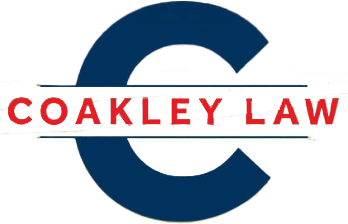Client Login
Client Login
×Coakley Law Firm Blog
Useful Info and Resources
on Cases and Laws
News

By Eric Coakley
•
March 28, 2025
Choosing the right business entity is one of the most important decisions you’ll make as a new business owner. For the vast majority of small businesses, the Limited Liability Company (LLC) is the most practical and advantageous option. In this article, I’ll walk through why an LLC tends to be the best fit for small businesses—and why it’s often a better choice than other structures like sole proprietorships or corporations. What Is an LLC? A Limited Liability Company is a legal business structure that blends elements of sole proprietorships, partnerships, and corporations. It's recognized as a separate legal entity from its owner(s), providing liability protection while offering flexibility in taxation and management. Key Benefits of an LLC for Colorado Entrepreneurs 1. Limited Liability Protection Forming an LLC creates a legal separation between you and your business. This means that if your business is sued or goes into debt, your personal assets (like your home or car) are generally protected so long as you follow the simple rules for operating an LLC. For solo business owners or small teams, this peace of mind is essential. 2. Ease of Formation Setting up an LLC in Colorado is quick, simple, and inexpensive. You can file the necessary documents (like your Articles of Organization) online with the Colorado Secretary of State in less than 30 minutes. There’s no need to hire an attorney to get started, though legal guidance can help tailor the setup to your specific needs. 3. Tax Flexibility Unlike corporations, LLCs are not taxed as separate entities by default. Instead, profits and losses “pass through” to the owners’ personal tax returns. This avoids double taxation and can offer real tax advantages. If needed, an LLC can even elect to be taxed as an S Corporation or C Corporation, giving you further flexibility as your business grows. 4. Fewer Formalities Compared to corporations, LLCs come with fewer and simpler administrative requirements. For example, you don’t need to hold annual shareholder meetings or keep extensive records of corporate resolutions as you would if you formed an Inc. This is important because a failure to adhere to the administrative requirements of the entity you choose can put your personal assets at risk. 5. Professionalism and Credibility Operating as an LLC can enhance your business’s credibility. Clients, vendors, and partners may feel more comfortable working with a registered business entity. It also makes it easier to open business bank accounts, apply for loans, and bring on partners or investors. 6. Ownership and Continuity LLCs can have one or multiple owners (called “members”) and allow for flexible arrangements in how profits, responsibilities, and decision-making are divided. If structured properly in an operating agreement, the business can continue even if a member leaves or passes away. Why Not a Sole Proprietorship? A sole proprietorship is the easiest structure to start—but it offers no liability protection. You and your business are legally the same, which means your personal assets are at risk if anything goes wrong. You’ll also miss out on some of the credibility, financing options, and tax benefits an LLC can provide. Why Not a Corporation? Corporations make sense for some businesses, particularly those seeking outside investors or planning to go public. But for most small operations, the corporate formalities, rigid structure, and potential for double taxation make them less appealing than LLCs. The LLC offers similar protections with far more simplicity. Final Thoughts An LLC hits the sweet spot for many small business owners in Colorado: It’s affordable, flexible, and protective. While every situation is unique, most entrepreneurs can benefit from starting out with an LLC—and adjusting as needed as the business evolves. In future posts, I’ll break down how to set up an LLC in Colorado, how to write an operating agreement, and when to consider other structures. If you have questions about your specific situation, feel free to comment or reach out directly.

By Eric Coakley
•
March 12, 2025
When I think of a business starting up, I imagine an explorer’s ship preparing to set sail. Each business is unique, with uncharted waters to navigate, perils to avoid, and adventures to embrace. The entrepreneur, our captain, leads the preparations from the quarterdeck. Barrels of salted meat, hardtack, and fresh water are rolled up the gangplank, their heavy thuds echoing against the planks. The sweet-sharp smell of tar rises as carpenters seal the seams of the hull. Each creak of the ship’s timbers, each shout from the sailors rigging the sails, is a reminder of what one forgotten supply, one poorly sealed seam, could mean. A map on the cartographer’s table marks the end of the known world with a bold, ominous line. Beyond it, a mysterious warning: Here Be Dragons. This is the moment of enless possibility and unknown risk. What awaits beyond the horizon? Will our captain discover lands of untold riches, or will the journey end on reefs that splinter the dream into driftwood? What dangers lie beneath the seas, hidden and waiting for the unprepared? At our firm, we act as the guide for small businesses, ensuring their ventures are equipped to weather storms and seize opportunities ahead. Join us in the coming weeks for our series on avoiding the legal perils a small business faces. From choosing the right business structure to navigating operations, sales, and the eventual closing or sale of your business, we’ll help you navigate the complexities of business ownership with confidence. With us as your legal guide, your business can set sail toward success.
Quick Links
Practice Areas
Coakley LLC
This website has been built to be accessible for all users. If you experience any difficulty in accessing this website, please contact us for assistance.

